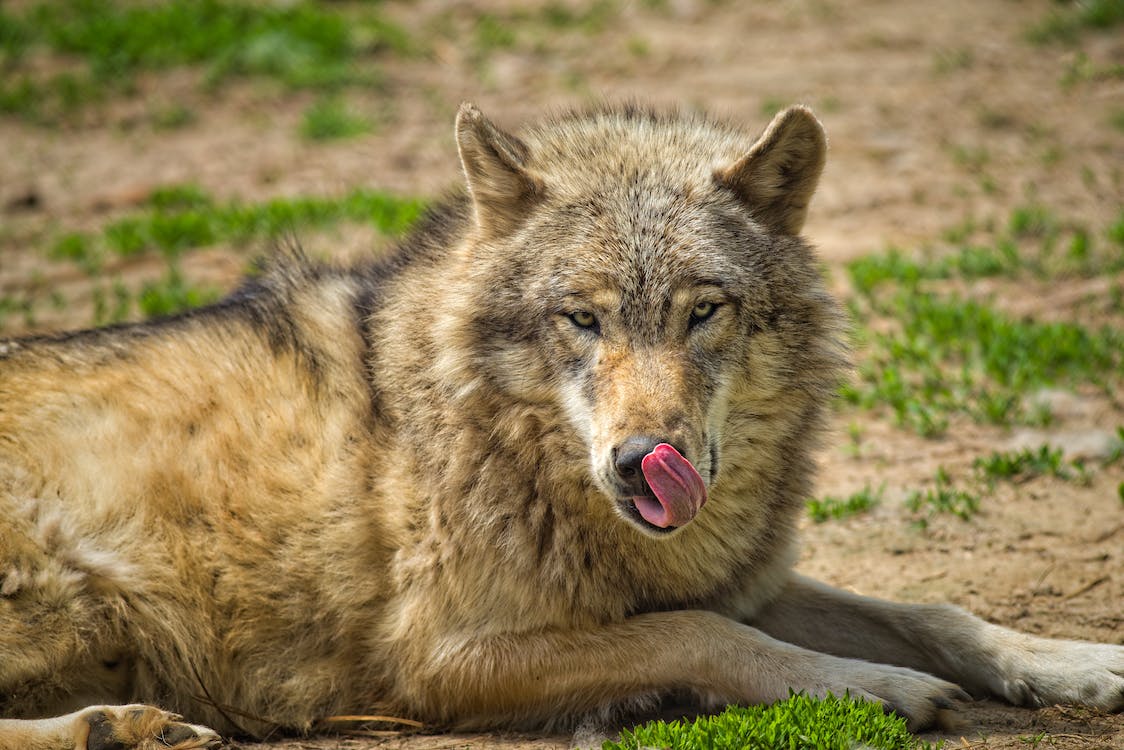Do you want to know Can You Own a Wolf in Texas? Wolves are wild animals that have not been domesticated like dogs.
While wolf-dog hybrids do exist, owning a pure wolf or high-content wolf dog as a pet poses many challenges and is illegal in certain areas.
This article provides an overview of wolf and wolf hybrid laws in Texas, considerations for owning them as pets, and their behavior.
Can You Own a Wolf in Texas?

It is illegal in Texas to privately possess, transport, or release pure wolves, per the Texas Parks and Wildlife Code. Pure wolf ownership is a felony with few exceptions.
Wolf-dog hybrids are classified as domestic dogs in Texas rather than exotic wildlife. Ownership is allowed with certain restrictions.
Breeds like Siberian Huskies, Alaskan Malamutes and German Shepherds visually resemble wolves but lack recent wolf ancestry. Ownership is fully permitted.
Requirements for Legally Owning Wolf-Dog Hybrids
Since wolf-dog hybrids are considered domestic dogs, there are only a few specific requirements:
- No permit needed – You do not need a exotic wildlife permit from Texas Parks and Wildlife to own a wolf-dog hybrid.
- Rabies vaccinations – Like all dogs, wolf-dog hybrids must stay current on the annual rabies vaccination.
- No breeding – Intentionally breeding dogs with wolves or wolf hybrids is illegal in Texas.
- Identification – Wolf-dog hybrids must have ID via a microchip or tattoo.
- Local laws – Some specific counties or cities in Texas may prohibit owning wolf-dog hybrids.
What states can you own a wolf as Pet?
There are very few states where private ownership of a pure wolf is allowed. Owning a wolf is illegal in most states, with exceptions only for wildlife sanctuaries, zoos, research facilities, or other permitted institutions.
States where private wolf ownership may be allowed with restrictions include:
- Idaho – Permits allowed for pure wolves and wolf-hybrids
- Indiana – Requires permit from Dept of Natural Resources
- Maine – Permit allowed for wolf possession
- Oklahoma – Permits available but wolves must be kept outdoors
- Utah – Permit from Dept of Agriculture required
- Wisconsin – Pure wolves illegal, but wolf-dog hybrids allowed
So in summary, Idaho, Indiana, Maine, Oklahoma, Utah, and Wisconsin are the only states with the potential to legally own a wolf with special permitting and restrictions. Wolf ownership is banned in most states.
Fact Check : – Wolves have excellent senses of smell, sight and hearing. Their sense of smell is up to 100 times better than a human’s. They can smell other animals from over a mile away.
Can you have a wolf as a pet in Texas?
No, wolves generally should not be kept as pets in a home or on private property.
Here are some key reasons why wolves do not make good pets:
- Wolves are not domesticated like dogs. They retain wild instincts and behaviors which are unpredictable and dangerous, especially around children or strangers.
- Wolves are escape artists that can jump fences or dig under barriers. An escaped pet wolf poses major risks to communities, livestock, and other pets.
- Wolves need lots of space and specialized enclosures that are difficult to provide safely on private residential property.
- Wolves are illegal to own in most states, making it unlikely to ever acquire one legally.
- Wolves live up to 15 years, so owning one is a long-term commitment to meet its needs.
- Wolves require a raw meat diet which can be expensive and difficult to provide properly.
Facts About Wolf
Wolf paws have a slight webbing between their toes that allows them to walk on snow and swim easily. Their paws are also very large, spreading out to better distribute their weight on snow and soft ground.
Wolves are the largest members of the canine family. Gray wolves are 4 to 6.5 feet long and weigh 40 to 175 pounds depending on location.
They can reach speeds of up to 40 miles per hour when running at full speed during a hunt. However, they can only sustain these speeds for short bursts.
Wolves communicate with each other using body language, scents, and vocalizations like barks, growls, and howls. Different howls convey different messages to the pack.
This specie have two layers of fur – a dense undercoat and longer protective topcoat, allowing them to thrive in cold climates.
Wolves are carnivores that mainly hunt large herbivores like deer, elk, moose and caribou. A single wolf can eat 20 pounds of meat in one sitting.
Wolf packs are usually family groups comprised of a breeding adult pair, pups and some older offspring. The average pack size is 5-8 wolves.
These are highly intelligent and social animals. They cooperate and coordinate to hunt prey much larger than themselves through teamwork.
Wolf pups are born blind and deaf. They depend on their mother’s milk until around 8 weeks old when they start eating regurgitated meat from adult pack members.
Once nearly hunted to extinction, wolf populations have rebounded in some regions due to conservation efforts. There are now an estimated 300,000 gray wolves globally.

Leave a Reply